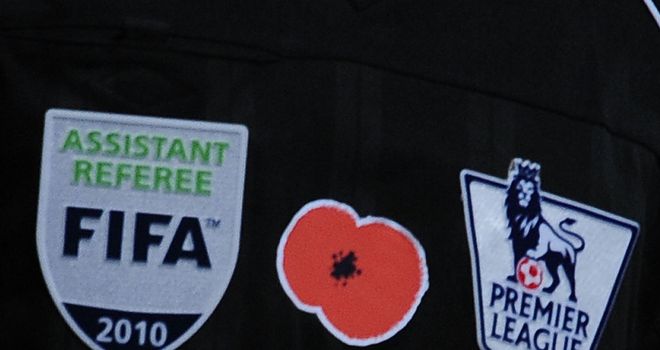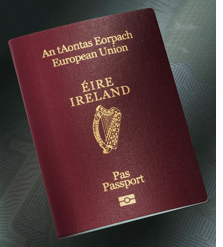Below is an article which appeared on SportsNews Ireland on 9/11/11.
Since 1965, the Republic of Ireland have competed in 6 play-offs for qualification to the final stages of major tournaments and only once, have they been successful; a remarkable statistic indeed.
It is often said that Ireland never make things easy and it is true that following the fortunes of the Irish national team can be an emotionally tasking endeavour: wherever Ireland go, drama is not far behind. This is especially true of play-off games.
 |
| Eamon Dunphy |
World Cup 1966 – Spain 1-0 Ireland (Stade Colombes*, Paris, 1965)
Interesting circumstances led to Ireland playing Spain three times in the qualifying stage for the 1966 World Cup. The withdrawal of Syria from the competition meant that there remained only two teams in the group. While Ireland triumphed 1-0 over Spain at Dalymount Park, Spain responded by trouncing Ireland 4-1 in Seville leading to a “best two out of three” play-off to decide the group winner. The game was played at a “neutral” ground, in France, although London had also been considered as a venue. However, Stade Colombes turned out to be less neutral than anticipated, as the Spanish diaspora in France swarmed the ground, roaring the La Roja on to a 1-0 victory, thwarting Irish hopes of qualification.
 |
| Patrick Kluivert |
Euro 1996 – Ireland 0-2 Holland (Anfield, Liverpool 1995)
Just over thirty years after the defeat to Spain in France, Ireland found themselves on the cusp of qualification for Euro ’96, with the mighty Dutch Oranje standing in their way. During the period between 1986 and 1995, Ireland had experienced their most successful period under the stewardship of Jack Charlton. Prior to this fixture, the affable Englishman had guided the Boys in Green to three major tournaments, missing out only on Euro ’92. However, with several key players unavailable, including midfield general Roy Keane and target man Niall Quinn, an ageing Ireland team struggled to impose their will on the Dutch and Patrick Kluivert, who had earlier that year scored the goal that clinched the first European Cup for Ajax since the days of Cruyff, scored two goals to condemn Ireland’s qualification hopes. After just under a decade, it proved to be Jack Charlton’s final game as Ireland manager.
 |
| Denis Irwin |
World Cup 1998 – Ireland 1-1 Belgium (Lansdowne Road, Dublin, 1997); Belgium 2-1 Ireland (Stade Roi Baudouin, Brussels 1997)
The end of the Charlton-era saw the appointment of Mick McCarthy as Ireland manager. McCarthy had been a bustling centre half, captaining Ireland in major games, and following in the footsteps of Jack Charlton, the expectations of him were high. Nevertheless, while McCarthy’s men struggled through qualification for the 1998 World Cup, they secured a play-off fixture against Belgium. The first leg finished 1-1, with Denis Irwin scoring. The result meant Ireland needed to score in Brussels to cancel out the Belgian away goal. However, it was the Belgians who took the lead mid-way through the first half. Ray Houghton scored a skilful header to equalise, but luck was not with the Irish in Brussels, as the Belgians scored a goal resulting from a dubiously awarded throw in in the Irish half. It finished 3-2 on aggregate and once again, Ireland failed to qualify.
Euro 2000 – Ireland 1-1 Turkey (Lansdowne Road, Dublin 1999); Turkey 0-0 Ireland (Atatürk Olympic Stadium, Bursa 1999)
After failing to qualify for France ’98, Mick McCarthy was hopeful of securing qualification to Euro 2000, which was hosted by former foes Belgium and Netherlands. Indeed, Ireland could have won automatic qualification in this campaign had they defeated Macedonia in Skopje, but, once again, it was not one for the faint of heart, as Goran Stavreski scored an equaliser in the final minute of the game to make it finish 1-1. Ireland were instead drawn against Turkey in the play off and despite the heartbreak of missing out in the last minute, McCarthy’s men remained optimistic. Robbie Keane scored in the 79th minute to give Ireland the lead, but his goal was cancelled out 5 minutes later, as Lee Carsley gave away a penalty, which was coolly converted by Tayfur Havutçu. Havutçu’s penalty proved to be the decisive blow for Ireland, as the away tie ended 0-0 and Ireland were dumped out of the competition by an away goal. It was a highly charged affair and the emotions spilled over at the end of the game, when Tony Cascarino found himself embroiled in post-match conflict involving a few Turkish players and riot police. Then FAI president Pat Quigley branded the scenes “unacceptable”, but it was the failure to qualify that Irish fans found to be unacceptable.
 |
| Azadi Stadium |
World Cup 2002 – Ireland 2-0 Iran (Lansdowne Road, Dublin 2001); Iran 1-0 Ireland (Azadi Stadium, Tehran)
Things continued to improve after the disappointment of 1999 and in spite of being drawn in arguably one of the most daunting qualifying groups, Ireland managed a truly commendable feat by finishing the group unbeaten and level on points at the top of the table with Portugal. Jason McAteer scored the winning goal against Holland at Lansdowne Road in a moment which will live forever in the minds of the Irish support. Only goal difference separated Ireland and Portugal and Ireland were drawn against Iran in the play off. Brimming with confidence and keen to succeed, Ireland eventually overcame the nerves and cruised to a 2-0 victory in the home tie, before braving the utterly intimidating atmosphere of the Azadi Stadium in Tehran. Faced with the vitriol of 100,000 odd supporters, Ireland held on to win 2-1 on aggregate and Mick McCarthy became the first Irish manager to win a play off.
 |
| "Thief of St. Denis" |
World Cup 2010 – Ireland 0-1 France (Croke Park, Dublin 2009); France 1-1 Ireland (Stade de France, Saint-Denis 2009)
Undoubtedly the most dramatic of Ireland’s play offs, the World Cup 2010 play off was marred by the controversial hand-ball incident involving Thierry Henry, the “Thief of St. Denis”, as George Hamilton would say. The fixture was actually marked by controversy from the beginning, as the powers-that-be decided to seed the draw, eliciting criticism from the smaller associations who had made the playoff. Amazingly, Trapattoni’s men had passed through the group stage unbeaten, but a deflected Nicolas Anelka shot dipped over Shay Given to grant the French victory at Croke Park. Despite efforts by the fans to “Turn Croke Park Green” and to create an electrifying atmosphere in the ground, the Irish team found it difficult against the French and many fans became pessimistic about the away tie. Yet, it happened to be a fantastic performance, lauded by pundits and commentators as the best Irish performance in years. Captain Robbie Keane and veteran winger Damien Duff admirably led the charges and took the game to France. Keane scored a wonderfully worked goal and Ireland created a mountain of chances, but failed to make them count as William Gallas, aided by the hand of Henry, knocked the ball into the Irish net in extra time. It finished 2-1 on aggregate and Trapattoni and his men were sent back to the drawing board to contemplate another campaign.
*There is conflicting information regarding the stadium, with some stating that Parc des Princes was the venue.







